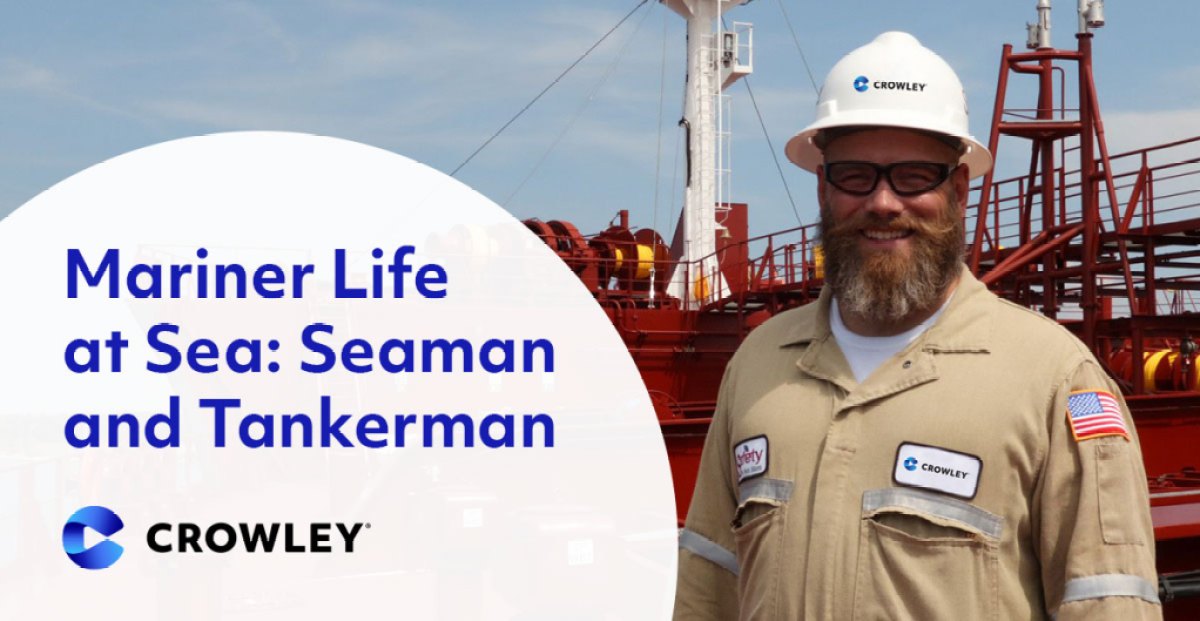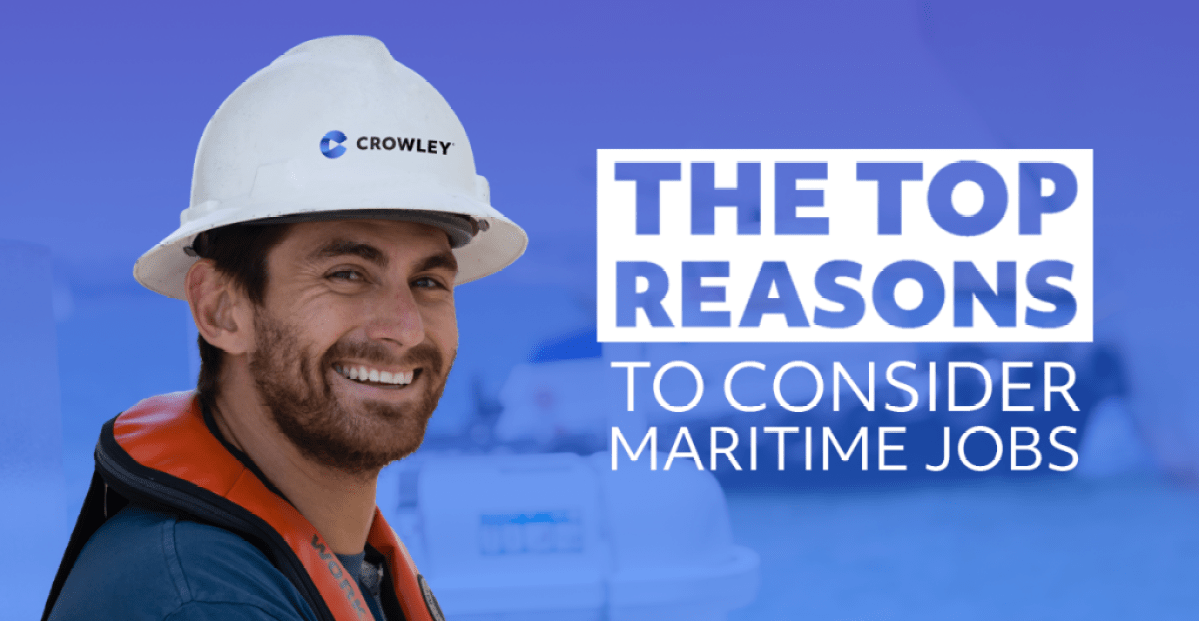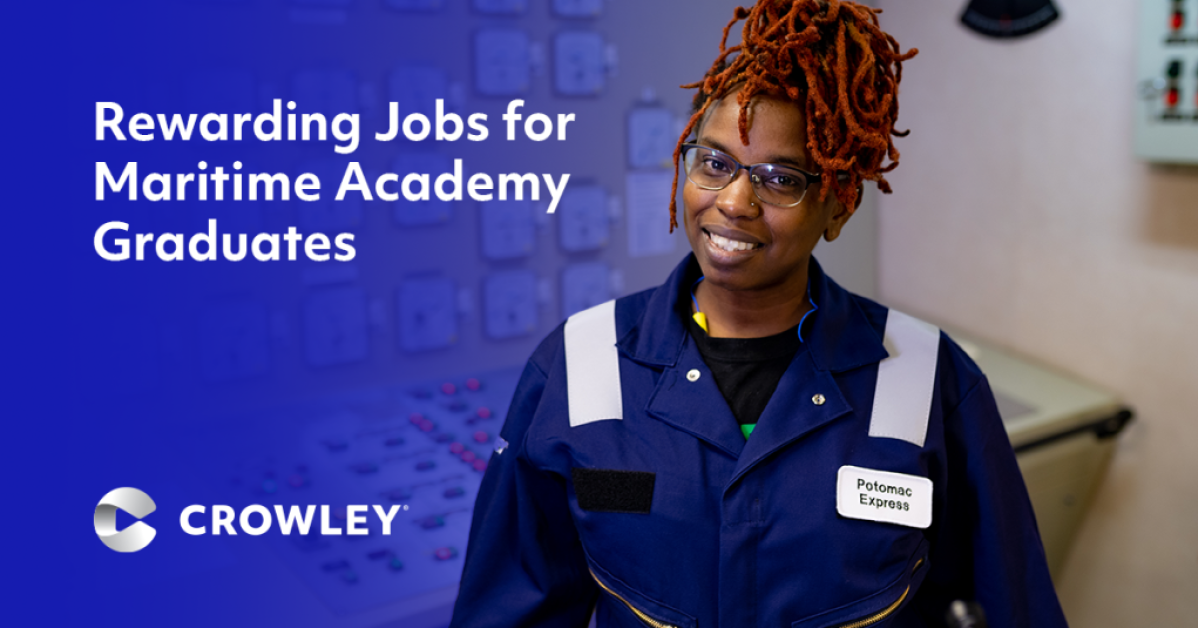Military to Civilian: Supporting Veteran Skills & Talent in Civilian Careers
Transitioning from military to civilian jobs may present unique challenges for veterans, including adapting to different workplace dynamics, communication styles and cultural norms. At Crowley, we’re committed to creating an environment that welcomes service members and builds off their skills and experiences obtained in service.
Three members of Crowley’s Veterans Business Resource Group (BRG) discussed their perspectives on transitioning to civilian life with Crowley.
Understanding and Embracing the Transition
Historically, the skills and experiences obtained from the military may not immediately or seamlessly align with those of civilian jobs, making the transition for veterans especially difficult. For example, veterans at Crowley noted that the verbiage used in the armed forces sometimes differs vastly from corporate language. In addition, some credentialing for merchant marine careers may not be quickly obtainable based on military service.
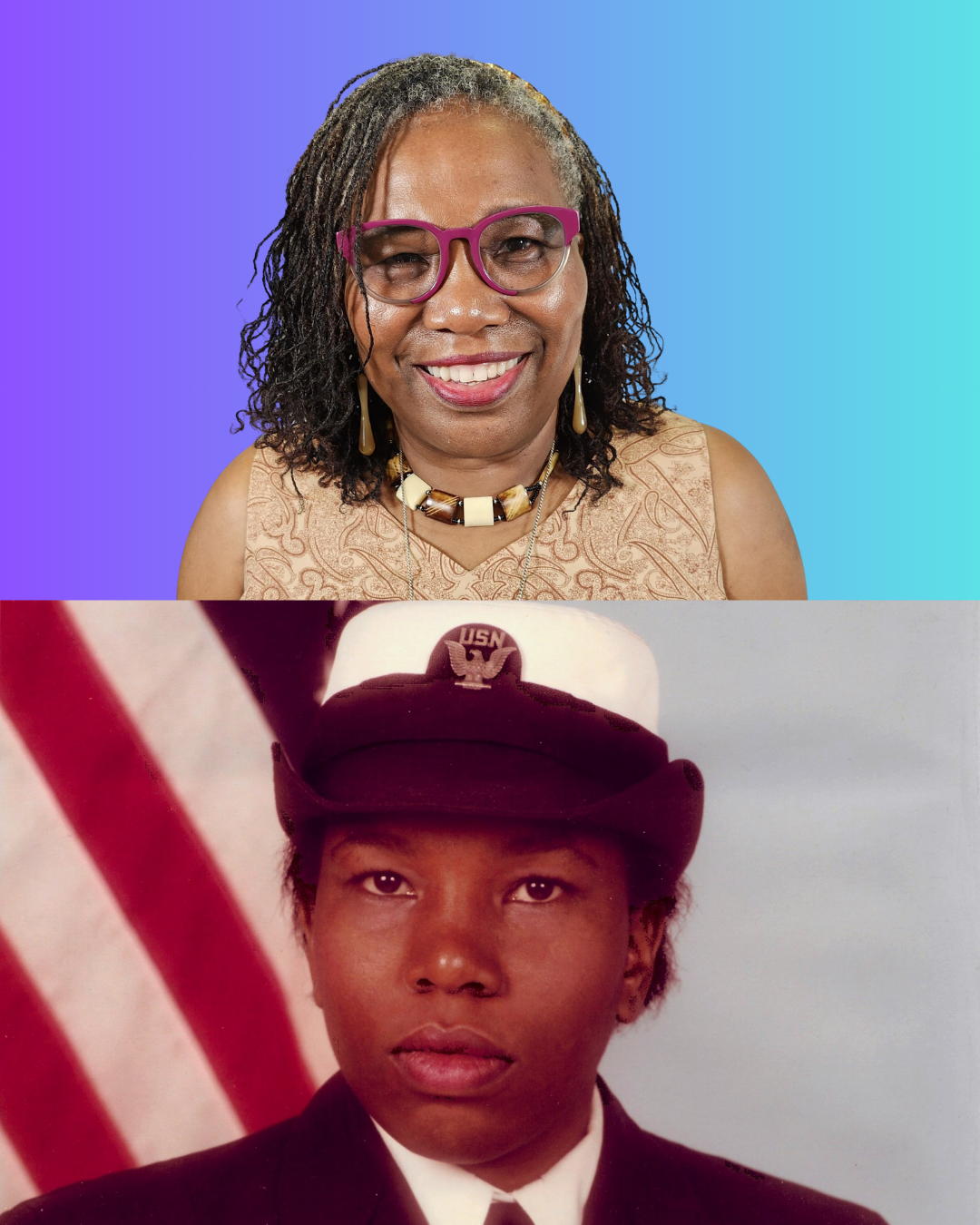
Maritza Moore is a category manager for Crowley’s procurement team supporting the Government Solutions business unit. For 11 years, she was an aviation storekeeper in the U.S. Navy, where she worked with crews supporting airplanes to ensure the proper supplies got to where they needed to be on time. Communication was a critical aspect of her role, and Moore detailed the initial hurdle in language from her experience in a civilian job:
“Veterans speak with a different language and sometimes it’s even dependent on what branch you served in,” she said. “For a new veteran that just came out [of service], trying to learn how to speak and interact on a corporate level versus speaking to folks you served with – there’s a lot of difference there.”
The transition from military to civilian working culture may also prove isolating for some, as their new peers may not have the same experiences. Patrick Tamasitis detailed the markedly different workplace culture in the civilian sector and how he was able to adjust swiftly:
Tamasitis is a general manager in Crowley Logistics overseeing terminal and trucking operations in Jacksonville and Pennsylvania. Tamasitis formerly served in the Navy for seven years. “I found the change to the civilian sector to be a complete culture shock,” he said. “I was searching and lusting for a true sense of team. It hindered my performance at work and, more importantly, at home. I lost my sense of ‘why’ for a short time.”
In turning around his situation, he added, “I realized that my ‘why’ was the value I brought to the team. I empowered my team to make hard decisions, embrace change and add positivity daily. Ultimately, realizing I could still have that value outside the United States Navy changed my mindset. Now, my team is at the forefront of my ‘why’.”
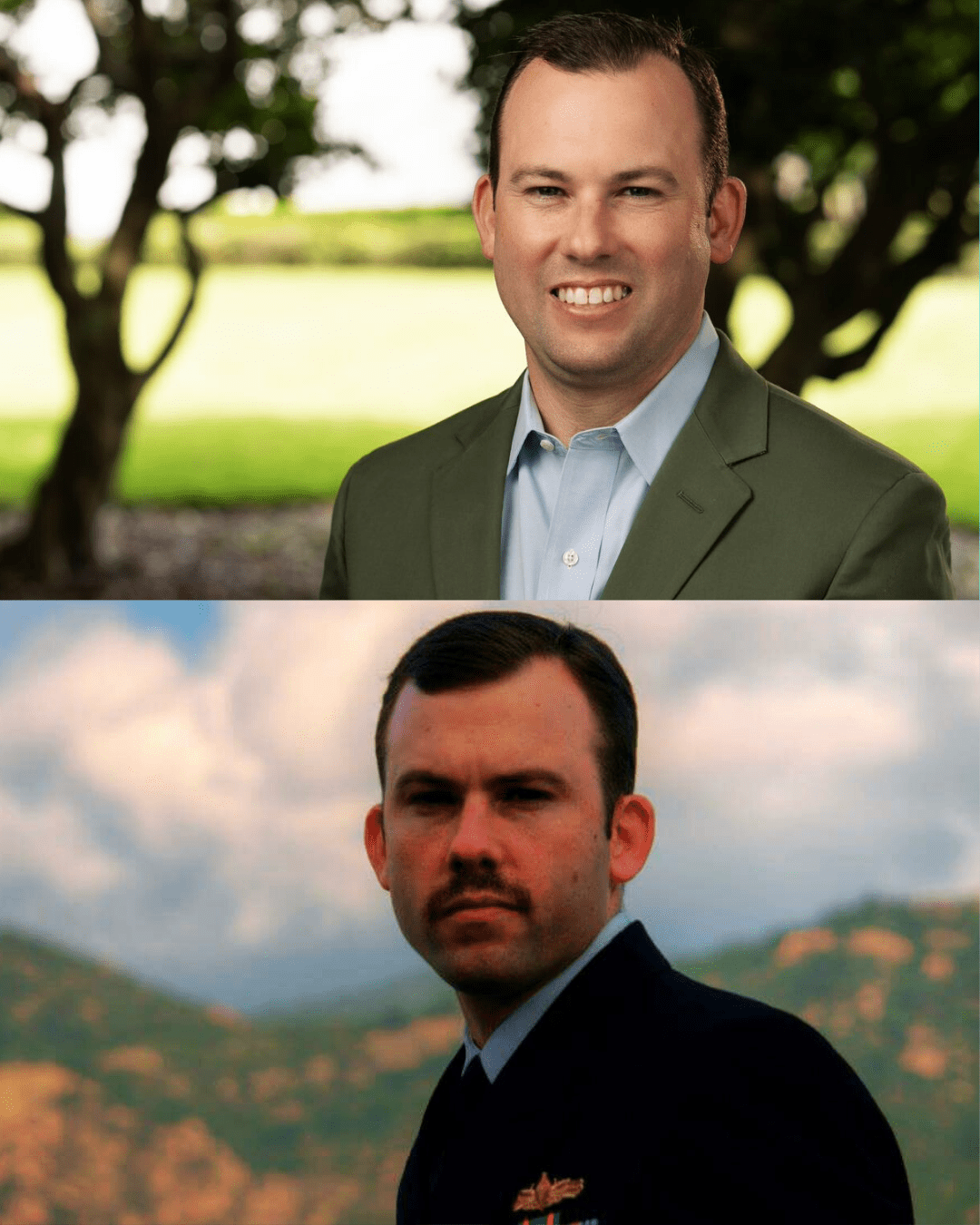
Providing Solutions with Tailored Support Programs
To solve these needs and be a strong partner to our veteran employees, Crowley offers an extensive suite of veteran-focused programs ranging from community support to recruitment to ensure resources are readily available when transitioning to a civilian career.
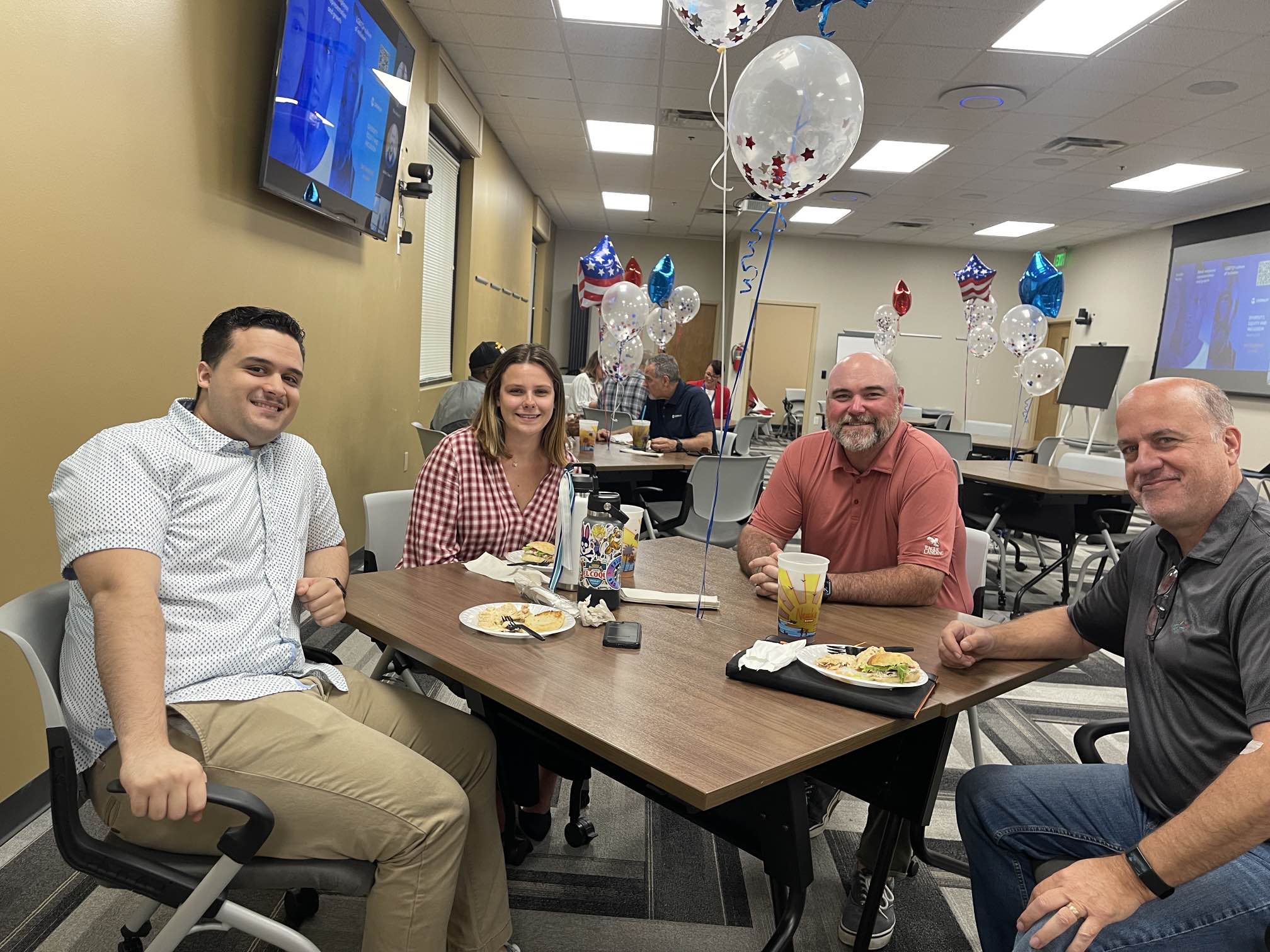
One of our most influential resources is the Veterans business resource group, which was established to provide a platform for building connections, resources and support for military members. Moore described the importance of having an established community of veterans in the workplace:
“I feel that within Crowley as a whole, the Veterans BRG, is able to provide a smaller community with likeminded individuals familiar with your experiences,” said Moore. “I’ve always liked listening to other people’s stories, especially those that understand what it was like to be in the military.”
Many veterans may experience challenges when building professional networks in the civilian world, facing a lack of access to the traditional educational and community networks that civilians benefit from. Tamasitis noted Crowley’s recruitment efforts for returning armed service members:
“Crowley actively recruits veterans and military personnel for a wide range of positions within the company,” he said. “They recognize the unique skills, discipline, and leadership veterans bring to the workforce and collaborate with veteran-focused organizations and initiatives to support veterans in their transition to civilian careers.”
We partner with veteran and armed services organizations to host job fairs, networking events and mentorship programs. These organizations include The Skillbridge Program, in collaboration with the U.S. Department of Defense, and the Transition Assistance Program (TAPS), in tandem with the Department of Labor. They help ease the transition to civilian careers by providing service members with opportunities for job training, apprenticeship and internships
Leveraging Military Skills in Civilian Careers
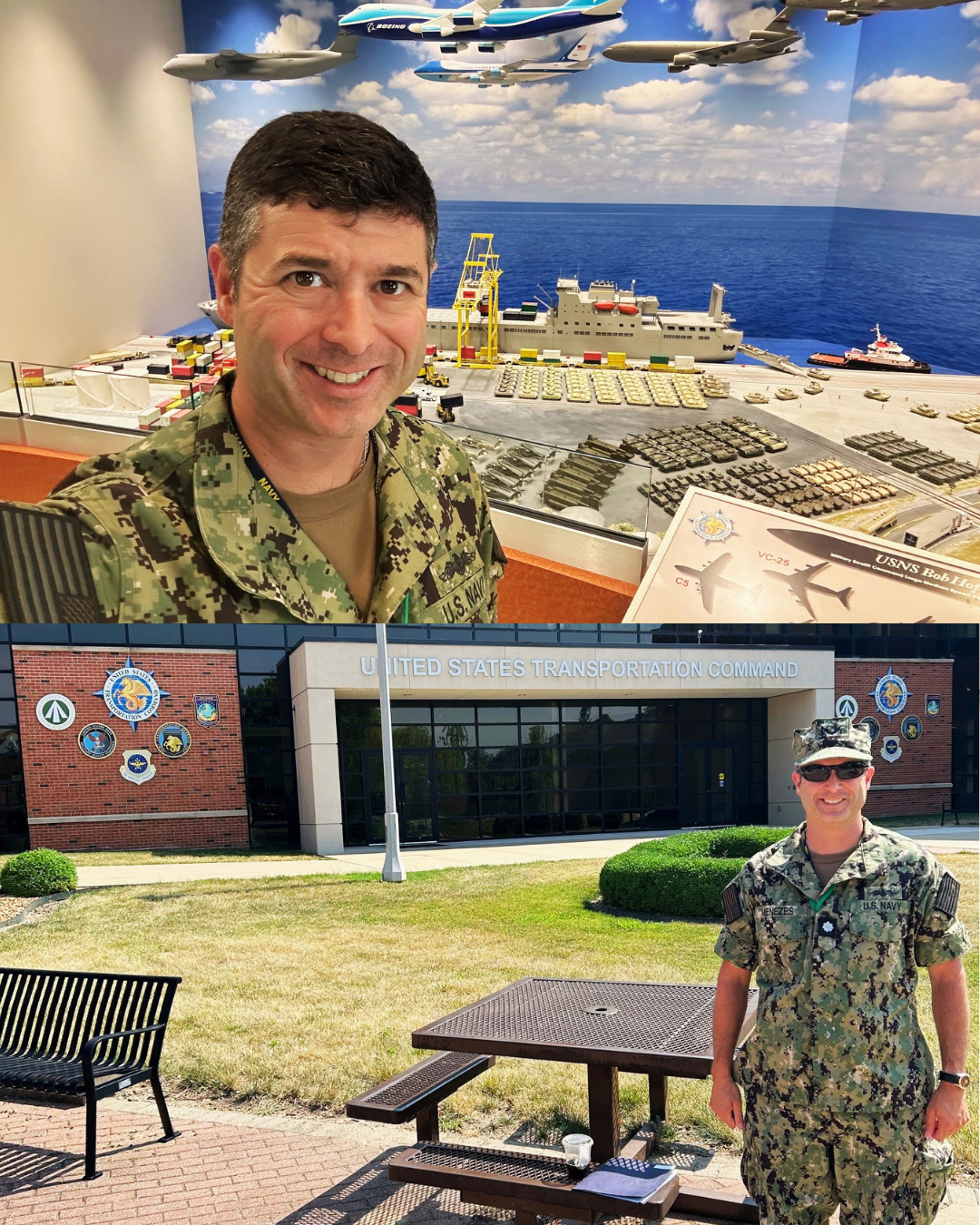
Our veteran employees at Crowley bring invaluable knowledge and work ethic that pushes our community forward. Capt. Christopher Menezes described the value of service for mariners:
Menezes has been with Crowley for over 14 years and is the captain aboard the Garden State, a Crowley tanker. He also serves as a reservist with the Strategic Sealift Officer (SSO) Force in the U.S. Navy, bringing the Merchant Marine’s civilian expertise to the Navy, too.
“As an SSO in the Navy, I get to work on various types of vessels and see other sides of the industry outside of the Jones Act tanker that I work on at Crowley,” said Menezes. “This broadens my overall view, and I can take good practices back to my ship at Crowley and do the same for the Navy.”
On shore, a veteran’s unique experience is essential to creating an inclusive and high-functioning work environment. Moore noted the unique atmosphere at Crowley compared to other roles:
“At Crowley, I hit the ground running because the foundation was already set in procurement,” said Moore, referencing her longtime career in the field. “I realized I just needed to understand their way of work and the systems they operate because the foundation of my skills came from when I joined the military.”
Menezes compared his day-to-day at Crowley with his service:
“When we’re at work, the crew is like a family, similar to the relationships found in military service,” said Menezes. “Although more relaxed than the military, we have a similar command structure. I find that many service members may not want a typical 9-5 job, and this is a great industry to have that different lifestyle.”
The Importance of a Supportive Work Community
According to TAPS, approximately 200,000 men and women leave U.S. military service every year and return to civilian life. With so many veterans looking to shift careers, building professional networks in the civilian world can be challenging as they’re accustomed to the structured support system within the military.
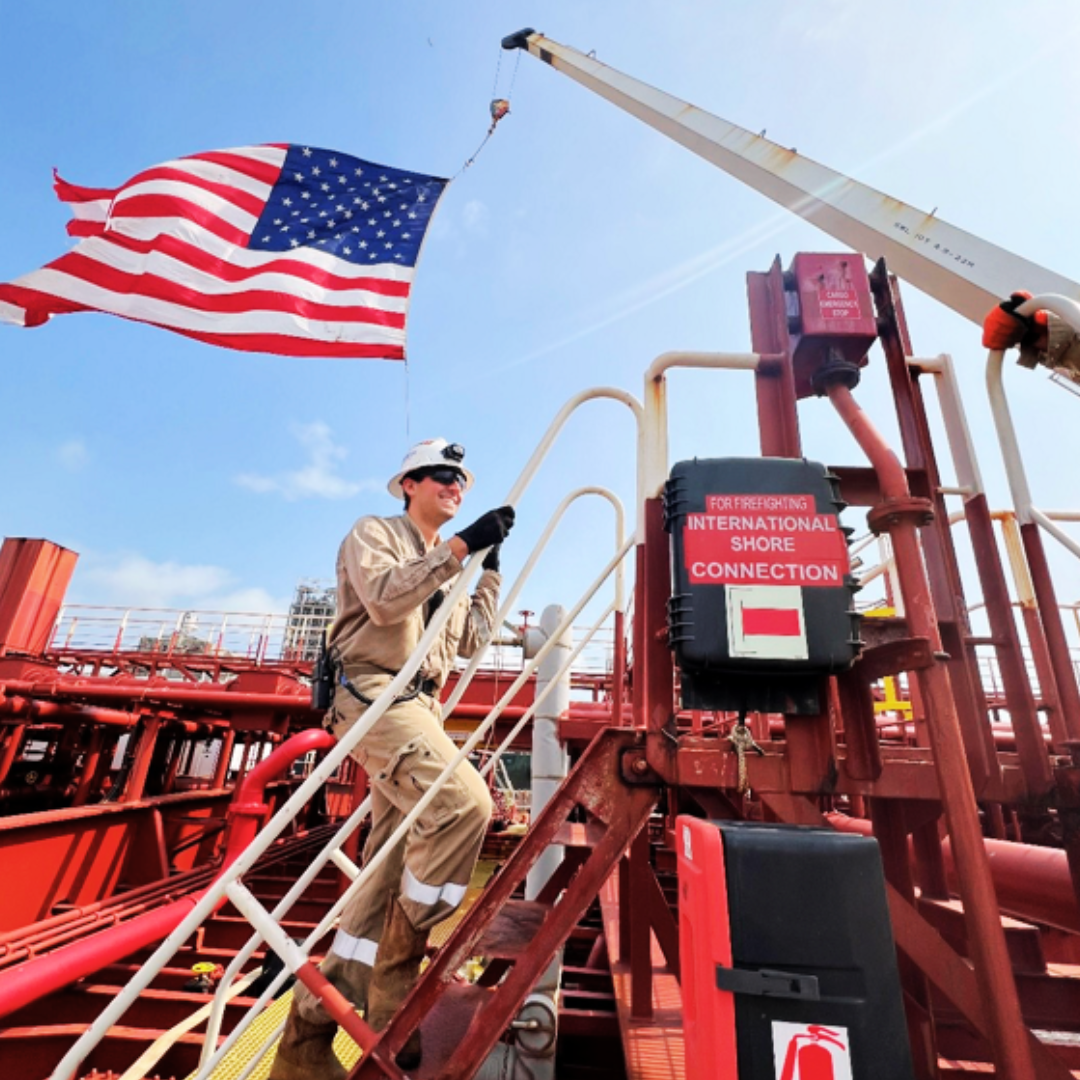

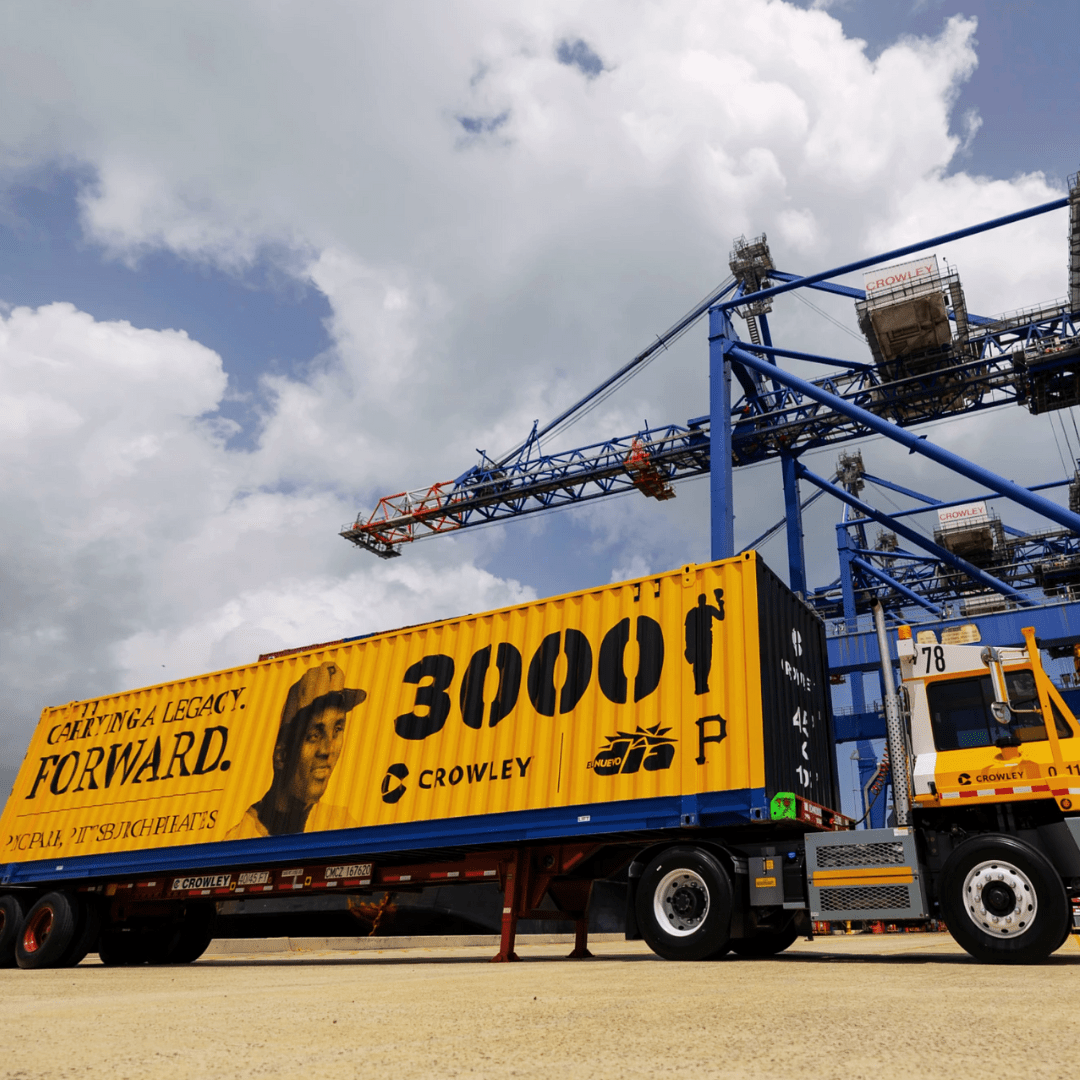
“When a lot of military people leave service, they don’t know what to do. So, I tell them that Crowley gives you the opportunity to train and build your skills,” said Moore, who is active in Crowley’s Veterans BRG. “That’s a big part of the inclusive feeling I’ve been able to find at Crowley – they make it very easy to integrate.”
“Crowley recognizes veterans throughout the fleet and onshore and has highlighted many people’s service and transition,” said Menezes. “Highlighting service is a great way for us to get to know the people we work with day in and day out – it connects us.”
At Crowley, we remain steadfast in welcoming our veteran team members with open arms and championing inclusivity, empowerment, and support for our service members and the communities close to them.
Learn more about civilian jobs for veterans at Crowley.
Crowley is a military- and veteran-friendly employer. We fully support active-duty, reserve and veteran military members and family members joining and advancing in the workforce.
We have many opportunities available where your skills, knowledge, and experience in the military can contribute to innovation and providing superior services.
OTHER STORIES THAT MAY INTEREST YOU:
